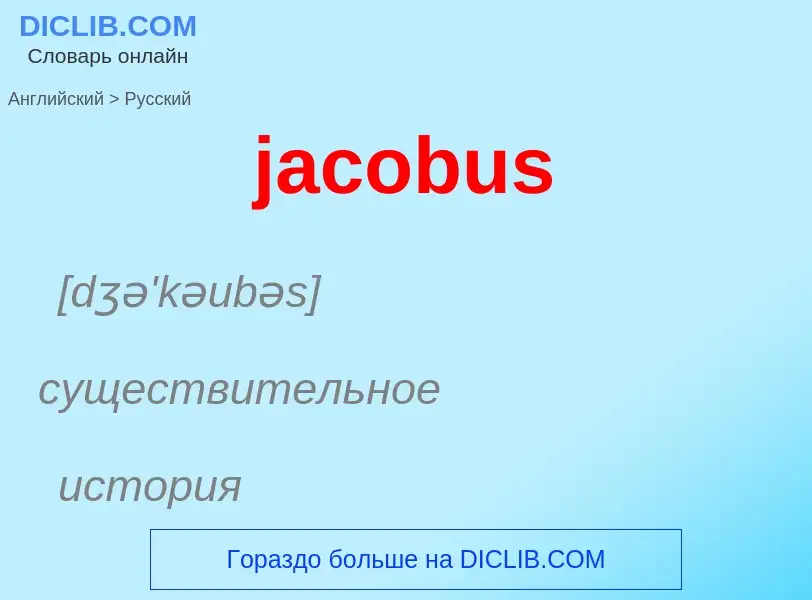Translation and analysis of words by ChatGPT artificial intelligence
On this page you can get a detailed analysis of a word or phrase, produced by the best artificial intelligence technology to date:
- how the word is used
- frequency of use
- it is used more often in oral or written speech
- word translation options
- usage examples (several phrases with translation)
- etymology
jacobus - translation to russian
[dʒə'kəubəs]
существительное
история
золотая монета XVII в. с изображением Якова
Definition
Wikipedia
A Jacobus is an English gold coin of the reign of James I, worth 25 shillings. The name of the coin comes from the Latin inscription surrounding the King's head on the obverse of the coin, IACOBUS D G MAG BRIT FRA ET HI REX ("James, by the grace of God, of Britain, France and Ireland King").
Isaac Newton refers to the coin in a letter to John Locke:
The Jacobus piece coin'd for 20 shillings is the 41th: part of a pound Troy, and a Carolus 20s piece is of the same weight. But a broad Jacobus (as I find by weighing some of them) is the 38th part of a pound Troy.
These correspond to masses of 9.10 and 9.82 grams respectively, making the broad Jacobus slightly heavier.

